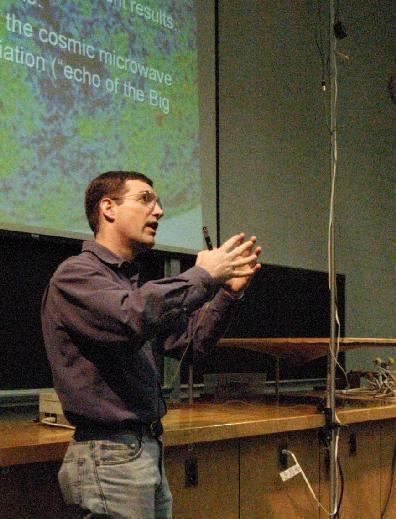Teaching
 The opportunity to teach undergraduates is one of the main reasons I chose to work at a university rather than in industry or at a national lab. Why study physics? First of all, because physics itself is pretty interesting. It explains why the sun shines, what the Higgs boson does, and how superconductors work. But maybe you want to understand issues that directly impact our 21st-century society, like green energy, the science behind climate change, or how to tell the difference between a nuclear power plant and a nuclear weapons program. Maybe you're curious about how an MRI or an ultrasound machine works. Or maybe you'd just like to know how a GPS can pinpoint your location, and that of the nearest pizza place, to within 10 meters. No matter what your interests or your career plans, studying physics will help you think more clearly about quantitative problems, learn what you can and cannot conclude from data, and deepen your appreciation of the unity and beauty of nature.
The opportunity to teach undergraduates is one of the main reasons I chose to work at a university rather than in industry or at a national lab. Why study physics? First of all, because physics itself is pretty interesting. It explains why the sun shines, what the Higgs boson does, and how superconductors work. But maybe you want to understand issues that directly impact our 21st-century society, like green energy, the science behind climate change, or how to tell the difference between a nuclear power plant and a nuclear weapons program. Maybe you're curious about how an MRI or an ultrasound machine works. Or maybe you'd just like to know how a GPS can pinpoint your location, and that of the nearest pizza place, to within 10 meters. No matter what your interests or your career plans, studying physics will help you think more clearly about quantitative problems, learn what you can and cannot conclude from data, and deepen your appreciation of the unity and beauty of nature.
I've received an Excellence in Education Award from the College of LSA, the University Award for Undergraduate Teaching, the Provost's Teaching Innovation Prize, and the university's highest teaching honor, an Arthur F. Thurnau Professorship. I have served as our department's Associate Chair for Undergraduate Education. Nevertheless, teaching sometimes doesn't go well.